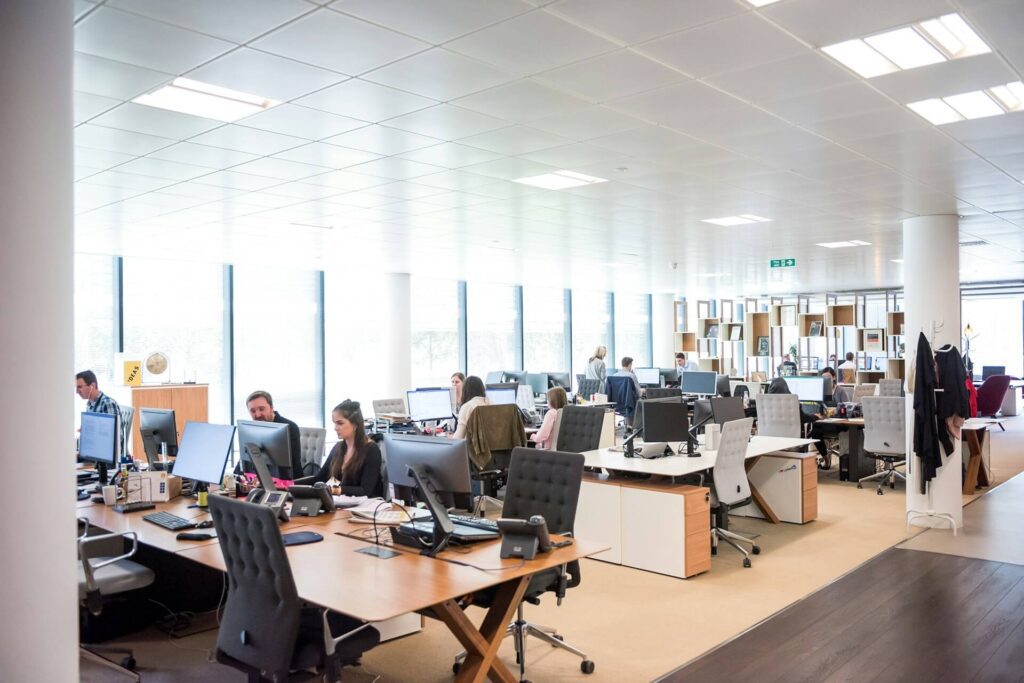
All About Mental Health & Psychological Safety in the Workplace
Every business owner, company leader, and human resources representative wants their employees to succeed. From casual Fridays to Pizza Tuesdays, workplaces have tried a number of tactics to increase employee satisfaction and improve their workplace culture. With more and more conversations happening regarding mental health in the workplace, understanding how to create psychological safety in the workplace is necessary to bolster your team’s overall success. Continue reading to learn more about psychology in the workplace.
What is Psychological Safety?
Psychological safety, at its most basic definition, is the absence of interpersonal fear. A team that feels an adequate level of psychological safety will feel comfortable openly sharing new ideas, taking risks, and admitting their mistakes. Team members are encouraged to speak up and give each other the benefit of the doubt. Within the umbrella of psychological safety, there are four main pillars to boost mental health in the workplace:
Learner Safety
Learning is vital to improving in any job, regardless of rank or role. When a workplace ensures psychological safety for its employees, team members feel safe to ask questions, experiment, discover, and look for new opportunities. Combined with the other pillars of psychological safety, employees will not only feel safe having made a mistake but will be able to learn from it most effectively.
Inclusion Safety
When planning how to create psychological safety in the workplace, inclusion safety is a high priority. Psychology in the workplace is greatly affected by feelings of value and fair treatment of all employees. Mental health in the workplace is a predictor of employee productivity too. When a team feels inclusion safety they’ll feel that their ideas and experience matter, empowering them to openly contribute. To reach inclusion safety, it’s a good idea to ensure all team members are included regardless of their title or position to instill a sense of value into every employee.
Collaborator Safety
Collaborator safety is especially important in the workplace. For the majority of businesses, employees will need to collaborate effectively to meet goals and exceed expectations. When a workplace establishes collaborator safety, team members will feel safe interacting with their colleagues in an unconstrained way, maintain an open dialogue, and cultivate constructive debate. As it relates to mental health in the workplace, employees should be spending most of their time in collaboration, making this pillar vital to general workplace satisfaction.
Challenger Safety
Challenger safety is perhaps the most overlooked of the four pillars of how to create psychological safety in the workplace. However, that just emphasizes its importance to psychology in the workplace. Team members should feel comfortable speaking up to challenge the status quo and expose problems. It may seem counterintuitive to workplace culture to encourage employees to be challengers. Challenger safety does not equate to incentivizing employees to offer undue criticism to team members, ideas, and business plans. Instead, it boosts mental health in the workplace because it means that in the case of genuine concerns, employees feel safe to express their ideas and identify changes. Otherwise, small problems could grow into serious issues that either harm the company or an employee.
What Are the Benefits of Psychological Safety?
To attract and retain top talent, businesses must establish an appealing workplace culture. However, many employers fall into common traps of superficial tactics to foster team bonding and appear to have a strong culture. Unfortunately, it doesn’t matter how many times you buy pizza for your employees if they don’t feel a level of psychological safety. To guarantee good mental health in the workplace and a welcoming, attractive workplace culture, you must know how to create psychological safety in the workplace.
Psychologically safe workplace cultures empower team members to be themselves and feel that they belong in the company. A 2015 study showed that psychologically safe workplaces bolster employee mental health and wellbeing, which are both key factors in productivity and talent retention. Another study measuring psychology in the workplace, including depression, anxiety, burnout, and post-traumatic stress, found that employees who felt supported by their workplaces experienced over fifty percent less psychological distress during the COVID-19 pandemic. This is especially notable– even during an especially difficult global crisis, tactics of psychological safety were effective in improving mental health in the workplace.
How to Create Psychological Safety in the Workplace
There are three levels a company should focus its efforts on to foster psychological safety in the workplace: the individual, the team, and the organization. Beginning at the top with organizational psychology, it’s helpful to begin with a systematic review of the current workplace culture to look for opportunities for growth. Companies organized in a way that promotes continuous improvement, support, and familiarity across teams directly correlate to companies with higher levels of psychological safety. Organizational counseling also benefits psychology in the workplace.
Going down a level, it’s good to focus on what team leaders and supervisors can do to bridge the gap between organizational goals and team goals in order to improve mental health in the workplace. Strong, supportive leadership is associated with improved workplace psychological safety. It’s up to the company leaders more so than any other position to ensure inclusion safety is established in the business. Additionally, leaders set the example for collaboration and challenges within the company– which demonstrates to others how to create psychological safety in the workplace. Leaders who encourage team members to voice their opinions and welcome constructive criticism will lead to a true sense of psychological safety and positive psychology in the workplace.
Finally, it is necessary to establish psychological safety at the individual level for better mental health in the workplace. If an employee does not feel a sense of belonging or value to the company, they’re unlikely to feel included, encouraged to express themselves, or supported. This leads to worsened mental health outcomes at work and therefore decreased productivity. Instead, consider routine check-ins, individualized celebrations of successes, and vacation opportunities to make sure every team member believes they have a positive impact on the company.
Reach Out for Help Today
Prioritizing psychological safety within businesses is highly beneficial to both the company and the individuals. Get started improving mental health in the workplace and schedule a consultation with Miami Hypnosis and Therapy. Learning the ins and outs of psychology in the workplace is useful for everyone. An organizational therapist is an option available to companies needing assistance with how to create psychological safety in the workplace. Get started with in-person or virtual therapy for Florida residents today!







Write a Comment